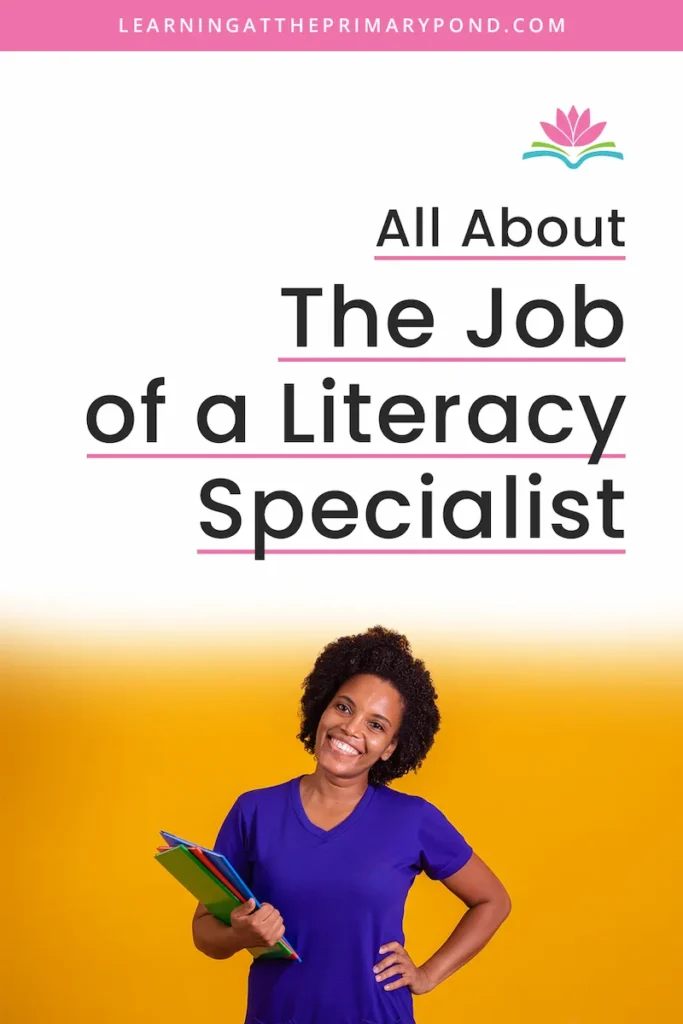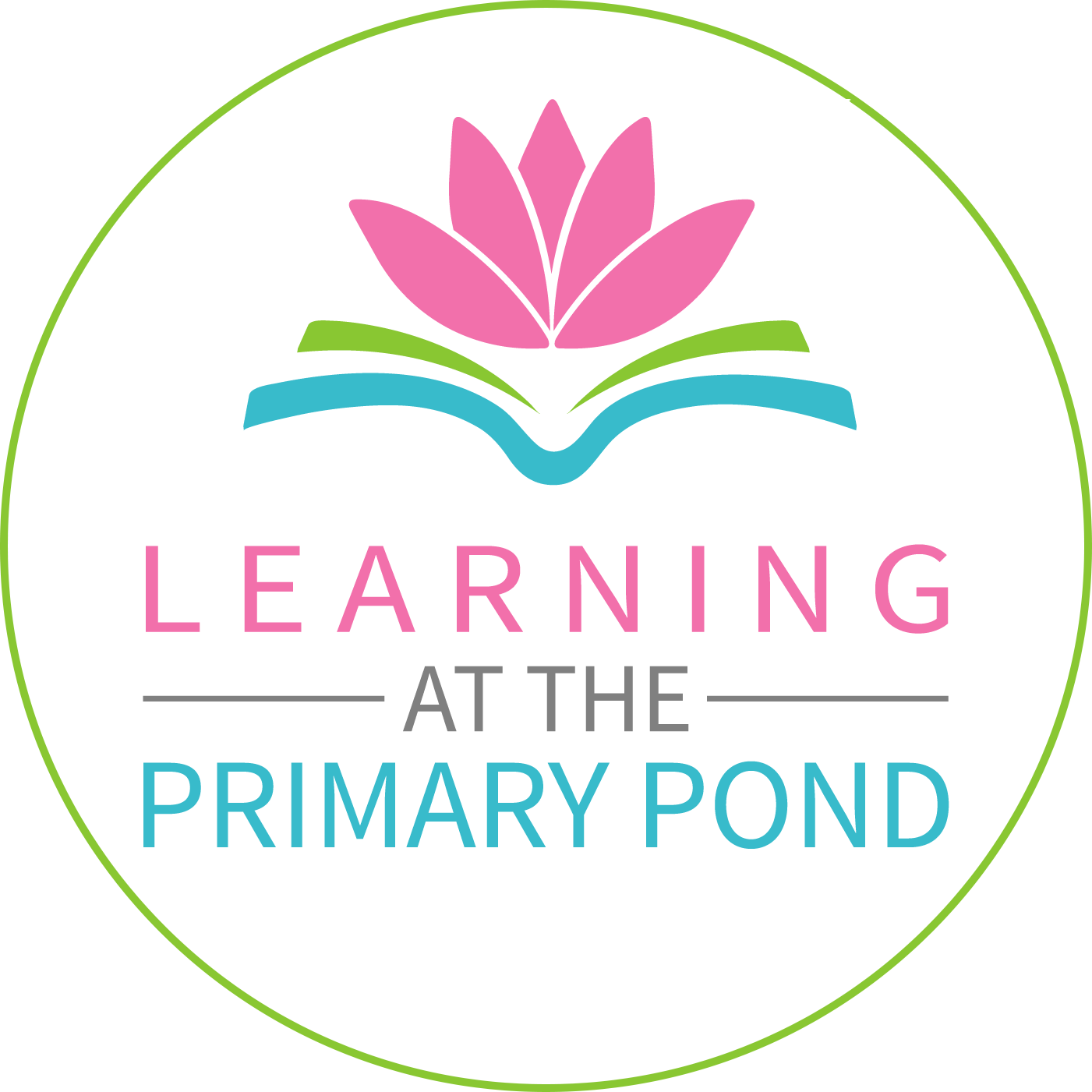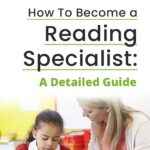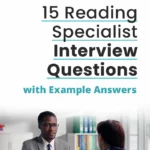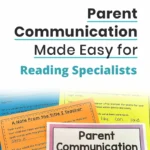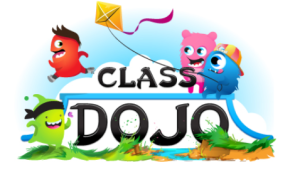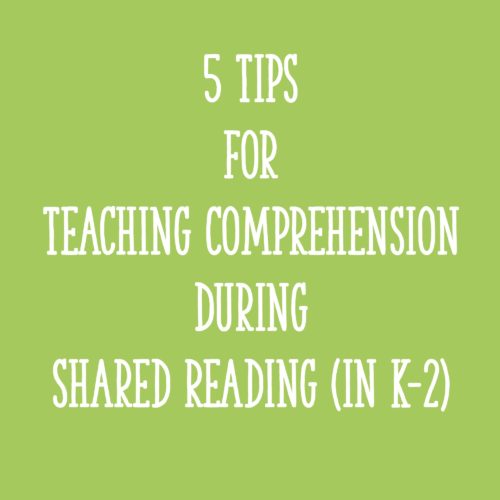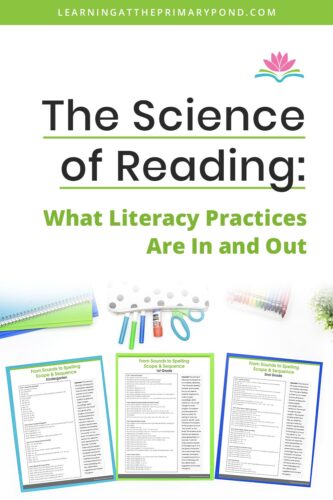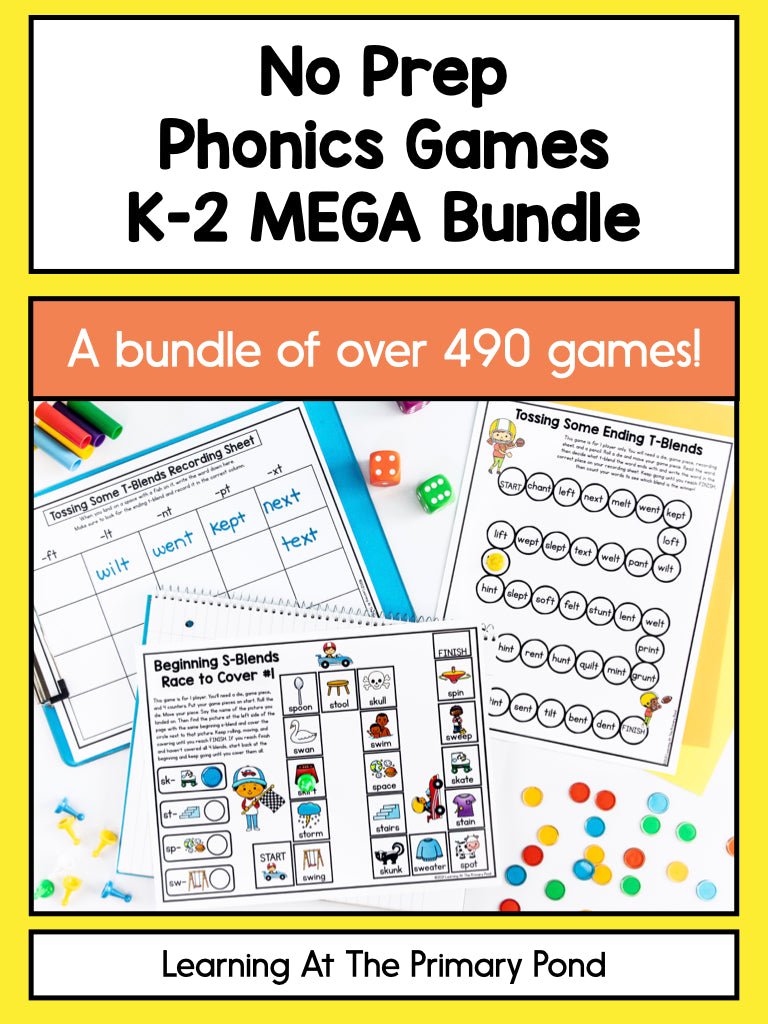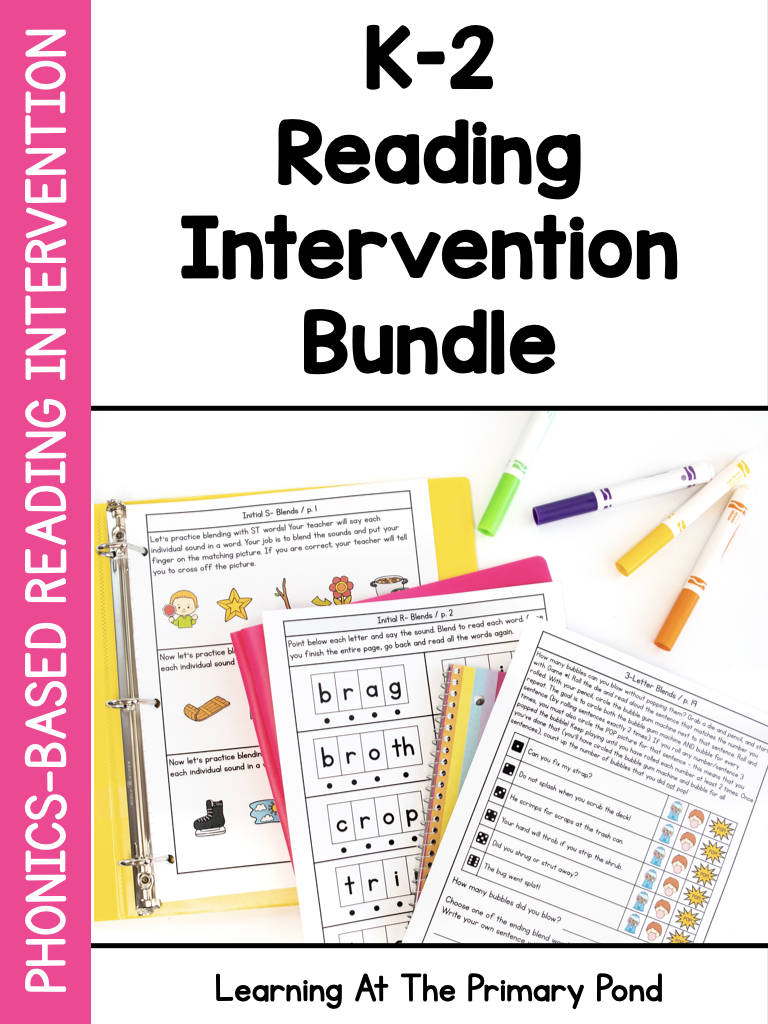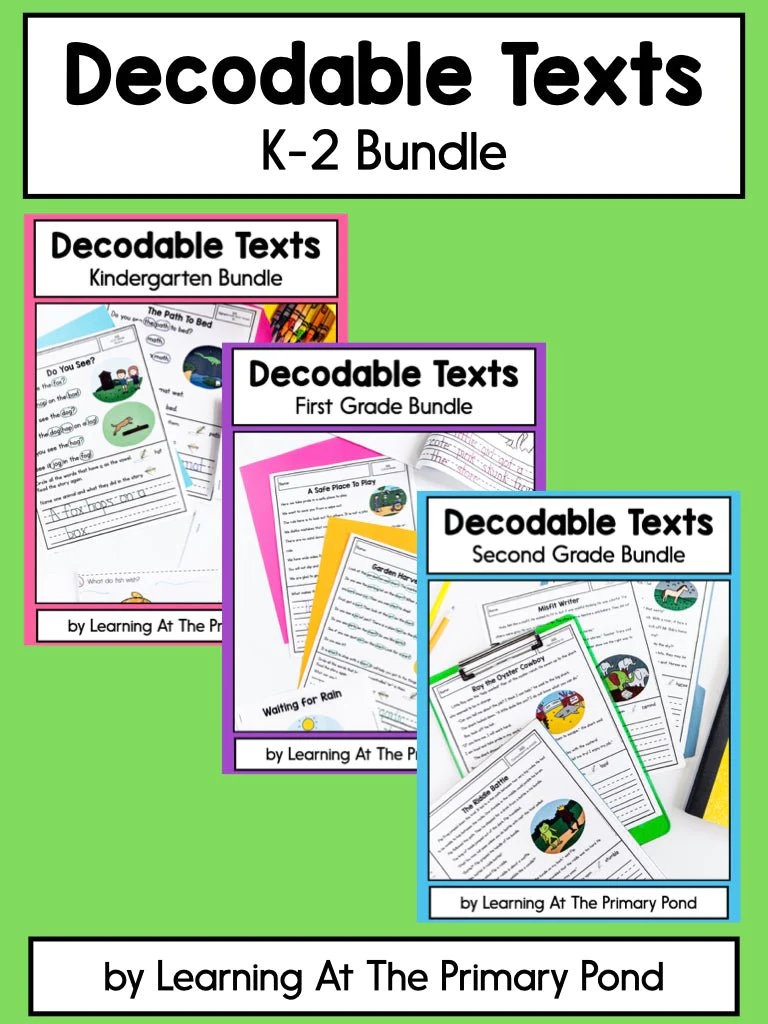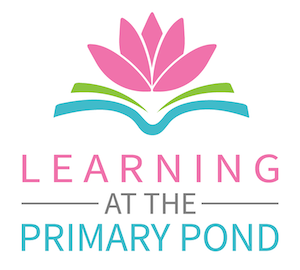A literacy specialist, often referred to as a reading specialist, is an educator who specializes in literacy (skills related to teaching reading and writing). Most literacy specialists, at least in the United States, work in K-12 education. Literacy specialists typically have training above and beyond a bachelor’s degree.
Want to know more about what a literacy specialist does to help students? Keep reading! While I’ll share details about the job of a literacy specialist, I’ll first cover some information on how to become a literacy specialist. And by the way, I am a literacy specialist and have been for over a decade, so this is a job that I highly recommend! 🙂
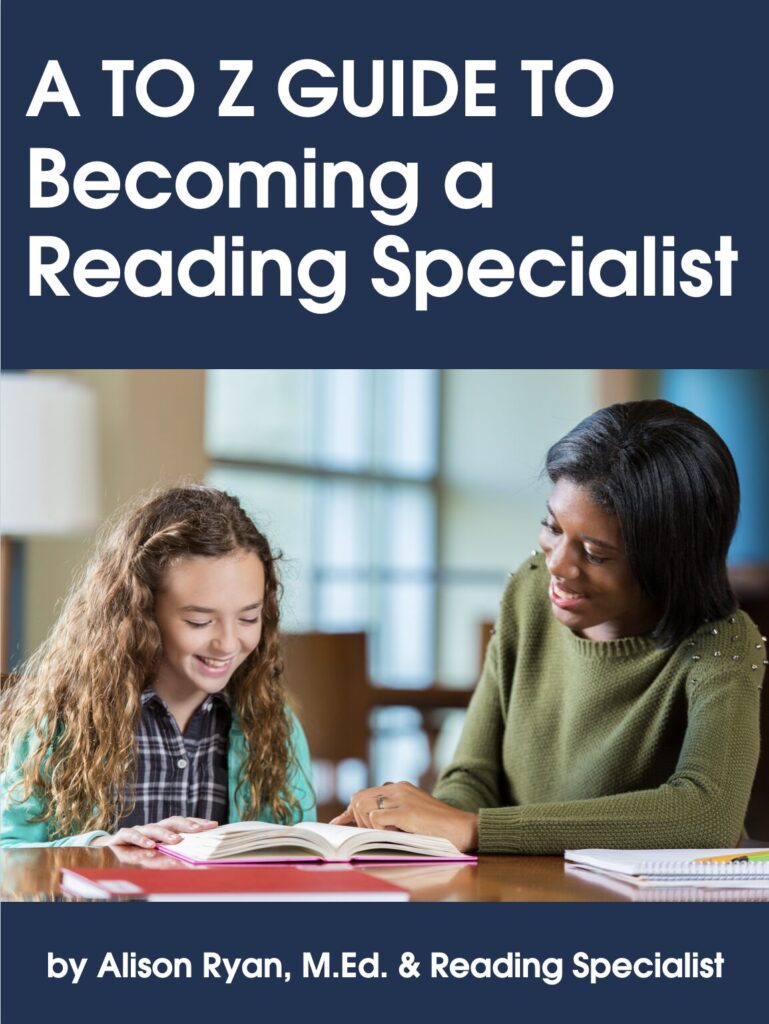
Why Become a Literacy Specialist?
At some point in your teaching career, you’ll probably start wondering about what your next step will be on your career path. Some teachers spend their entire careers in the classroom, while others choose to add different certifications to their license, or move into administrative and leadership roles.
As you consider what you want your career in education to look like, it’s good to weigh your strengths as a teacher with what you love doing most in the classroom. There is a huge focus on literacy education and instruction as I’m writing this, and a big push for improving upon the teaching of reading and writing.
If you’re a classroom teacher, you know firsthand that there are a LOT of students who struggle with mastering literacy skills, even more so post-pandemic. We’re all, in some capacity, teachers of reading, despite our varied backgrounds in different content areas. Differentiating instruction for those students who pick up on things after one round of instruction, and those who need repetition upon repetition–can be really challenging. As education professionals, we all have days when it feels next to impossible to meet the varying needs of students in our classrooms.
This is where a literacy specialist comes in. While the classroom teacher has to balance teaching a variety of subjects to a classroom full of students with unique needs, a literacy specialist can focus solely on the supplemental instruction needed to help those struggling readers. Literacy specialists are highly trained in specialized literacy instruction, and can help support classroom teachers as they navigate teaching their students literacy knowledge and skills.
Consider the following:
- Is literacy time one of your favorite times during the school day?
- Do you excel at breaking down literacy skills for students who need some extra help and repetition?
- Do colleagues value your opinions and input on lesson ideas and instructional strategies pertaining to reading and writing?
- Has your administrator ever given you positive feedback on instructional strategies during observations?
- Does learning about the newest research and best practices excite you and inspire you to enhance your capacity as a literacy teacher?
If you can answer “yes” to any of these questions you might consider becoming a literacy specialist! (And you can grab this free guide to learn more about the process.)
How To Become a Literacy Specialist
Obtaining a literacy specialist certification is a manageable goal if you have the desire to pursue it! There are a wide variety of ways to begin a certification program that will help you obtain your license. Many teacher education programs cater to teachers who are working full time, and since there are so many programs to choose from, you’ll absolutely be able to find one that works for you.
Master’s Degree vs. Graduate Certificate
Some state requirements specify that a master’s degree is necessary to become a literacy specialist or reading specialist. A literacy specialist degree is a great option, especially if you need/want a master’s degree anyway, as it will open up a lot of new opportunities for you.
If you don’t want to commit to a master’s program, or want to become certified faster with fewer credit hours, it’s also possible (in some states) to become a literacy specialist by earning a graduate certificate, which includes graduate level literacy classes without the commitment to a full master’s program. While the literacy specialist program types will vary, you can count on taking courses that involve content in language development and acquisition, literacy assessments and interventions, and school wide literacy planning.
Traditional Programs
Are you a student who learns best in a physical classroom with a professor in front of you? Check out graduate programs at local colleges and universities. Some schools will offer master’s degree programs, while others have a certificate program. If you don’t see a literacy program listed, it’s worth checking in with the education department to see if they offer courses with content that would be useful or lead to licensure/certification.
Online Programs
You might not live close enough to a college or university that offers the program you’re interested in. Luckily, the majority of schools offer some sort of virtual programming now. If you’re not physically located near your ideal program, or if you’d just rather work at your own pace, you won’t be at a loss for online options. Choose from literacy programs with asynchronous courses where you work independently, or find one with classes that meet virtually so that you still get that interaction with professors and collaboration with other graduate students.
Potential Jobs for a Literacy Specialist
Once you finish your literacy specialist certification, you’ll find you have a lot of options to choose from as you consider next steps in your career! A literacy specialist can fulfill many different roles and responsibilities.

Classroom Teacher
Not everyone who obtains a literacy specialist certification moves into a new role upon completion of their program. No matter how many years of teaching experience you have, becoming more highly qualified in literacy instruction will benefit not only the quality of your teaching, but also the impact you have on student achievement.
Many teachers choose to stay in the classroom and utilize their new skills to boost engagement and success in their literacy classes. Having more in-depth knowledge of the ways children learn to read, and knowing how to intervene if they are reading below grade level, are invaluable skills for any teacher.
Reading Specialist
Many school districts have qualified reading specialists who work in schools to support teachers and students. A reading specialist often takes on more of a leadership role and assists in supporting teachers and schools in implementing their literacy initiatives.
Reading specialists often help administer assessments and diagnose reading disabilities, in addition to helping create plans to bring struggling readers closer to grade level. A reading specialist has more in-depth knowledge surrounding strategies for breaking down literacy instruction for students who need a more intensive delivery.
They will often help in the classroom setting by supporting curriculum development, providing individualized strategies, and modifying/adapting/supporting the parts of the curriculum that cover the most challenging reading skills for students.
Literacy Interventionist or Reading Interventionist
Literacy interventions (support for struggling readers) can be complex, and classroom teachers without specialized literacy knowledge can struggle with how and when to intervene. Literacy interventionists, however, specialize in data collection and analysis, and will create small group interventions and specialized curriculum and materials based on that data.
A literacy interventionist is well-versed in different literacy interventions that are available within their district, and is in charge of making sure students are grouped appropriately and given an effective intervention based on their individual needs. Many literacy interventionists work with multiple classroom teachers, pulling different sets of small groups of students throughout the day.
Literacy Coach
If you’re a natural leader, and like teaching adults as much as (or more than!) you do kids, then a literacy coach role would be a great fit for you. Literacy coaches are often in charge of things like overseeing literacy development and curriculum implementation at the school level, providing professional development to staff surrounding best practices in literacy, and serving as a liaisons between district level administrators and school faculty and staff.
This role includes coaching teachers and supporting them instructionally, and requires you to stay up to date on the latest research and best practices, to ensure your school is creating the best possible literacy environment for students.
Professional Development for Reading Specialists / Literacy Specialists
Speaking of staying up to date, doing so is essential for all literacy specialists! That’s one big reason why I created The Reading Intervention Collaborative, a professional development and coaching program for K-5 educators who deliver reading intervention.
This membership includes over 17 hours of training videos (and growing!). Each month, members get access to a new, 30 minute private podcast episode. Many of the episodes highlight new research developments in literacy, so you can easily stay up to date by listening on the go!
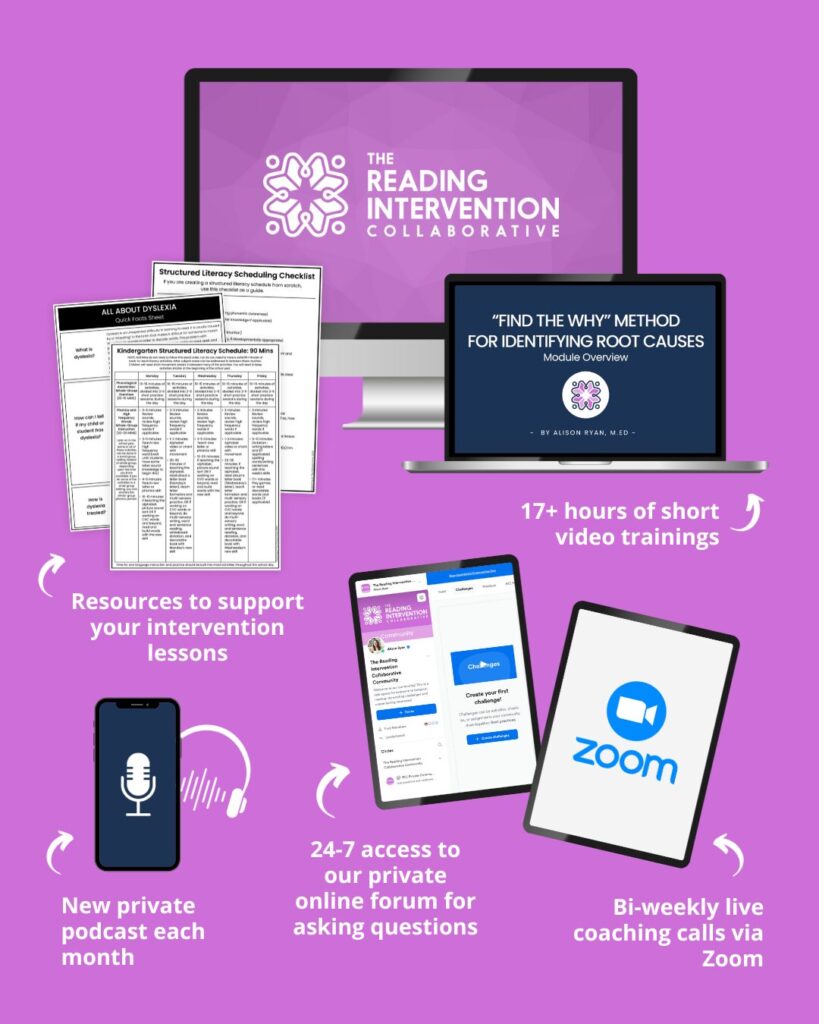
Even if you’re not a reading specialist or literacy specialist yet, the RIC can still help you in your practice. We also have many classroom teachers in the membership, getting support with helping their students who are struggling with reading.
Although the Reading Intervention Collaborative is not a complete intervention program to follow day by day, we still provide you with resources and printable tools you can use immediately!
For example, you get slide decks for practicing blending or decoding multisyllabic words, decodable texts, graphic organizers, and much more!
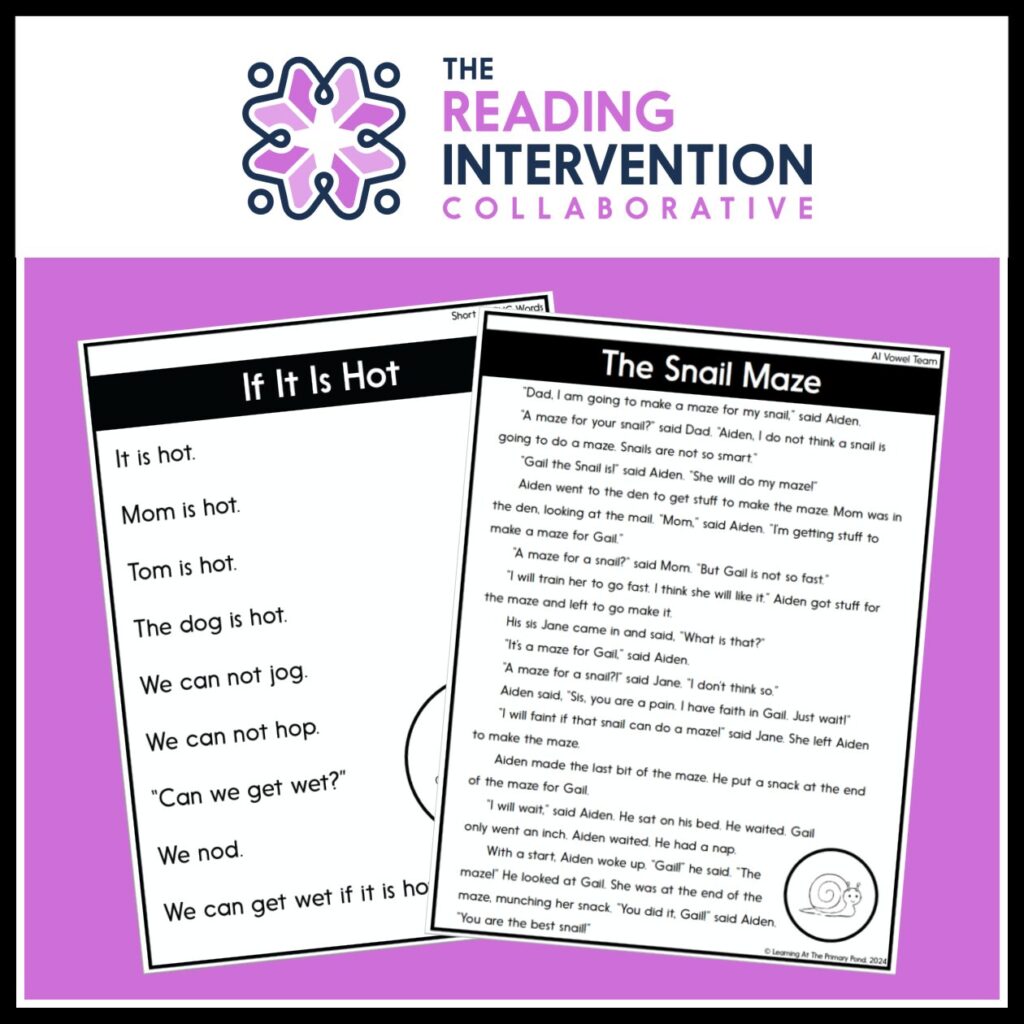
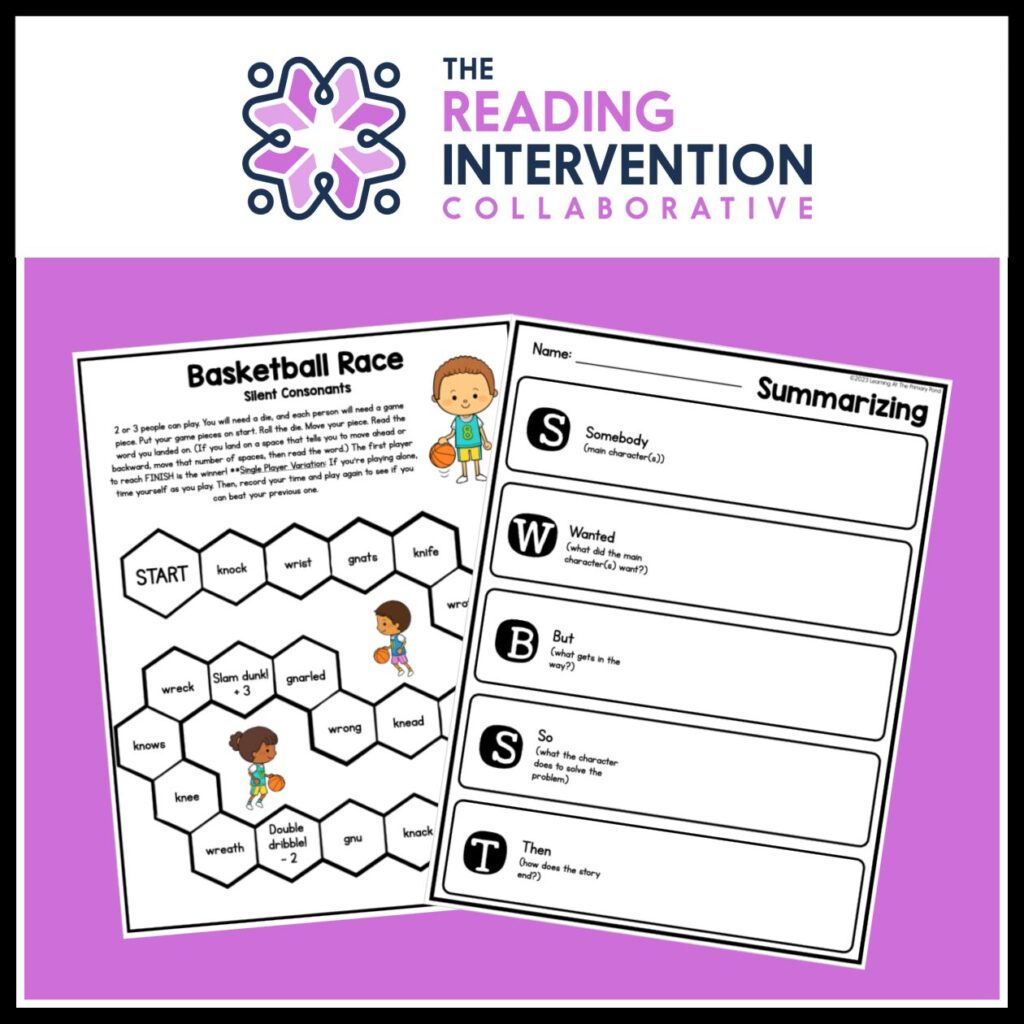
Click here to read more about the Reading Intervention Collaborative. Feel free to email support@learningattheprimarypond.com with any questions!
